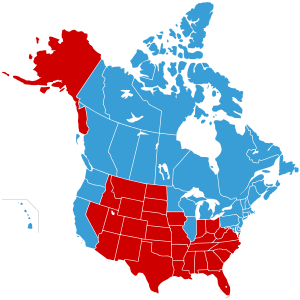whitestone7
Banned
The state of britain in the european union as comparison
Reasons to be cheerful? Well, at least the sun shone yesterday
By Jeff Randall
Last Updated: 12:57am BST 06/06/2008
 Have your say
Have your say
 Read comments
Read comments
Newspapers are often accused of being wilfully alarmist in order to boost circulation. Destruction and disaster are more appealing to readers than jolly tales about jumble sales, so we churn out the former and spike the latter. That, at least, is the allegation.
 If Brown is so keen on Britishness, why did he renege on a manifesto promise for a referendum on a new European Union constitution?
If Brown is so keen on Britishness, why did he renege on a manifesto promise for a referendum on a new European Union constitution?
For the defence, the argument is clear. With what is going on today, there is no need to manufacture gloom.
The real news is bad and getting worse.
After a decade of New Labour, the United Kingdom feels increasingly dysfunctional, a country whose economic engine has been filled with bootleg fuel - excessive personal debt, uncontrolled immigration, government profligacy - and is now blowing thick smoke.
Essential parts of the machinery are broken. Gordon Brown and his team of unqualified mechanics would prefer that we turn up the radio to drown out the grinding noise, but it's too late - the damage has been done.
Having promised us Rolls-Royce services, they have delivered Del Boy's three-wheeler.
A golden legacy is ending up on the scrapheap.
For someone who likes the world to know how clever he is, the Prime Minister has made a spectacular botch of his maths exams. Brown's command of big numbers - projected arrivals from overseas, the gold price, Budget deficits - is hopeless, D-minus.
None of his sums adds up.
The price of the average house fell by 2.4 per cent last month, no bad thing unless you (along with many others) have borrowed beyond the limit of prudence in order to buy one. Inflation is a threat, so the Bank of England is in a box on interest rates. Mortgage costs are rising, as nervous banks re-price risk. Higher taxes, energy costs and food bills are further squeezing consumers.
Read more from Jeff Randall
The Organisation for Economic Co-operation and Development says Britain is uniquely vulnerable to the direst financial conditions since the early 1990s, largely because of Brown's "excessively loose fiscal policy".
Having emptied the piggy bank, with far too little to show for it, the Prime Minister and his glove-puppet next door have no room to cut taxes and prevent sharp decline.
Growth is set to halve; unemployment is heading for a nine-year high.
Aside from money matters, Britain's social cohesion is crumbling. The creed of multiculturalism, which the Government and its BBC cheerleaders did so much to promote, has created not a rainbow nation, but groups of disconnected and disaffected racial and religious minorities, some of whom detest the very thing that Brown now urges the nation to celebrate.
The glue that binds us - real Britishness - has been corroded by a bunch of vote-hungry desperados who don't even understand it.
If Brown is so keen on Britishness, why did he renege on a manifesto promise for a referendum on a new European Union constitution?
Why did he give away another chunk of our sovereignty at a sordid deal in Lisbon?
Why did he support a devolutionary settlement for Scotland that created a democratic deficit in England, setting one part of the Union against another?
These betrayals cannot be masked by a silly day of flag waving.
Forget for a moment the ugliness of the BNP; many decent British people feel deeply disturbed by the upheaval to their local areas brought by unfettered immigration.
Not unreasonably, they liked their towns as they were.
They didn't want them filled with people who neither speak their language nor share their values.
They did not vote for this, yet are uneasy about speaking out lest the forces of political correctness charge them with "racism".
It is an uncomfortable irony that it takes two prominent immigrants, both senior churchmen - Michael Nazir-Ali, the Bishop of Rochester, and John Sentamu, the Archbishop of York - to identify the hurt we have inflicted on ourselves by an over-indulgence of those who are hostile to our Christian-based traditions.
Perhaps it's because they come from abroad (Dr Nazir-Ali was born in Pakistan, Dr Sentamu in Uganda) that they feel confident to tackle issues that our domestic leaders prefer to avoid.
While Rowan Williams, the Archbishop of Canterbury, is chewing over the benefits of sharia, Dr Sentamu has launched a blistering attack on Labour's moral vacuity, condemning its support for "entitlements" and an "abused form of equality", while allowing responsibility to fall "off the radar".
Remember Tony Blair's speech about being "tough on crime, tough on the causes of crime"?
Another broken promise.
Our jails are full to bursting, yet there is an epidemic of fatal stabbings.
Just as the cost of living is becoming painfully more expensive, life in the sink estates has never been cheaper.
No wonder thousands of prisoners every year reject the chance of early release.
It's safer in Wandsworth prison than on Wandsworth Common.
Priorities are warped to fit Labour's definition of "fairness", which all too frequently means bribes for those it hopes will keep the party in power. Private pensions are raided to help fund a heavily defrauded tax credit system.
People who save are punished to reward those who don't.
Our soldiers are asked to mop up Blair's mess in the Middle East, yet they are paid, as General Sir Richard Dannatt points out, less than a traffic warden.
Squaddies are being blown up in far off hell-holes for about one third of the salary of an Equality and Diversity Officer (circa £35,000).
State education, into which Labour has tipped hundreds of billions of additional funding, has failed wretchedly to respond to taxpayers' largesse. Ministers boast of soaring standards, but the public is not fooled.
More parents than ever before would send their children to private schools if they could afford the fees.
According to an Ipsos MORI poll, 57 per cent would consider taking their offspring out of state schools, up from 48 per cent in 2004.
Labour's response has been to persecute our best universities, threatening them with the cane of a cut in resources if they don't admit more state-educated students.
About £3 billion has been spent in England alone trying to "widen participation", but the cash has largely been squandered.
Ten of Britain's top universities - Oxbridge, St Andrews, Durham, Imperial, Bristol, LSE, UCL, Nottingham and Edinburgh - have a state-school intake of less than 70 per cent, whereas on a simple pro-rata basis it should be 93 per cent.
The reason has little to do with snobbery or elitism, but a commendable desire by these world-class institutions to maintain their reputations as centres of excellence.
Their admissions' tutors would love to accept more pupils from unfashionable comprehensives, but too few get the grades.
By contrast, the drop-out rates at some new universities (much favoured by Labour's class-warrior propagandists), where the bar to entry is barely off the ground, are up to 50 per cent - a criminal waste of time and talent.
Enough bad news? Ok, let's talk about the weather.
This is for those of you that might think that the european union is all roses for britain and a host of other nations
As far as I am concerned we should look at them as an example of what not to do
This is what will happen if we integrate
Auto manufacturing jobs are disappearing as we speak
We will face a huge loss of liberties if we let this happen
Reasons to be cheerful? Well, at least the sun shone yesterday
By Jeff Randall
Last Updated: 12:57am BST 06/06/2008


Newspapers are often accused of being wilfully alarmist in order to boost circulation. Destruction and disaster are more appealing to readers than jolly tales about jumble sales, so we churn out the former and spike the latter. That, at least, is the allegation.

For the defence, the argument is clear. With what is going on today, there is no need to manufacture gloom.
The real news is bad and getting worse.
After a decade of New Labour, the United Kingdom feels increasingly dysfunctional, a country whose economic engine has been filled with bootleg fuel - excessive personal debt, uncontrolled immigration, government profligacy - and is now blowing thick smoke.
Essential parts of the machinery are broken. Gordon Brown and his team of unqualified mechanics would prefer that we turn up the radio to drown out the grinding noise, but it's too late - the damage has been done.
Having promised us Rolls-Royce services, they have delivered Del Boy's three-wheeler.
A golden legacy is ending up on the scrapheap.
For someone who likes the world to know how clever he is, the Prime Minister has made a spectacular botch of his maths exams. Brown's command of big numbers - projected arrivals from overseas, the gold price, Budget deficits - is hopeless, D-minus.
None of his sums adds up.
The price of the average house fell by 2.4 per cent last month, no bad thing unless you (along with many others) have borrowed beyond the limit of prudence in order to buy one. Inflation is a threat, so the Bank of England is in a box on interest rates. Mortgage costs are rising, as nervous banks re-price risk. Higher taxes, energy costs and food bills are further squeezing consumers.
Read more from Jeff Randall
The Organisation for Economic Co-operation and Development says Britain is uniquely vulnerable to the direst financial conditions since the early 1990s, largely because of Brown's "excessively loose fiscal policy".
Having emptied the piggy bank, with far too little to show for it, the Prime Minister and his glove-puppet next door have no room to cut taxes and prevent sharp decline.
Growth is set to halve; unemployment is heading for a nine-year high.
Aside from money matters, Britain's social cohesion is crumbling. The creed of multiculturalism, which the Government and its BBC cheerleaders did so much to promote, has created not a rainbow nation, but groups of disconnected and disaffected racial and religious minorities, some of whom detest the very thing that Brown now urges the nation to celebrate.
The glue that binds us - real Britishness - has been corroded by a bunch of vote-hungry desperados who don't even understand it.
If Brown is so keen on Britishness, why did he renege on a manifesto promise for a referendum on a new European Union constitution?
Why did he give away another chunk of our sovereignty at a sordid deal in Lisbon?
Why did he support a devolutionary settlement for Scotland that created a democratic deficit in England, setting one part of the Union against another?
These betrayals cannot be masked by a silly day of flag waving.
Forget for a moment the ugliness of the BNP; many decent British people feel deeply disturbed by the upheaval to their local areas brought by unfettered immigration.
Not unreasonably, they liked their towns as they were.
They didn't want them filled with people who neither speak their language nor share their values.
They did not vote for this, yet are uneasy about speaking out lest the forces of political correctness charge them with "racism".
It is an uncomfortable irony that it takes two prominent immigrants, both senior churchmen - Michael Nazir-Ali, the Bishop of Rochester, and John Sentamu, the Archbishop of York - to identify the hurt we have inflicted on ourselves by an over-indulgence of those who are hostile to our Christian-based traditions.
Perhaps it's because they come from abroad (Dr Nazir-Ali was born in Pakistan, Dr Sentamu in Uganda) that they feel confident to tackle issues that our domestic leaders prefer to avoid.
While Rowan Williams, the Archbishop of Canterbury, is chewing over the benefits of sharia, Dr Sentamu has launched a blistering attack on Labour's moral vacuity, condemning its support for "entitlements" and an "abused form of equality", while allowing responsibility to fall "off the radar".
Remember Tony Blair's speech about being "tough on crime, tough on the causes of crime"?
Another broken promise.
Our jails are full to bursting, yet there is an epidemic of fatal stabbings.
Just as the cost of living is becoming painfully more expensive, life in the sink estates has never been cheaper.
No wonder thousands of prisoners every year reject the chance of early release.
It's safer in Wandsworth prison than on Wandsworth Common.
Priorities are warped to fit Labour's definition of "fairness", which all too frequently means bribes for those it hopes will keep the party in power. Private pensions are raided to help fund a heavily defrauded tax credit system.
People who save are punished to reward those who don't.
Our soldiers are asked to mop up Blair's mess in the Middle East, yet they are paid, as General Sir Richard Dannatt points out, less than a traffic warden.
Squaddies are being blown up in far off hell-holes for about one third of the salary of an Equality and Diversity Officer (circa £35,000).
State education, into which Labour has tipped hundreds of billions of additional funding, has failed wretchedly to respond to taxpayers' largesse. Ministers boast of soaring standards, but the public is not fooled.
More parents than ever before would send their children to private schools if they could afford the fees.
According to an Ipsos MORI poll, 57 per cent would consider taking their offspring out of state schools, up from 48 per cent in 2004.
Labour's response has been to persecute our best universities, threatening them with the cane of a cut in resources if they don't admit more state-educated students.
About £3 billion has been spent in England alone trying to "widen participation", but the cash has largely been squandered.
Ten of Britain's top universities - Oxbridge, St Andrews, Durham, Imperial, Bristol, LSE, UCL, Nottingham and Edinburgh - have a state-school intake of less than 70 per cent, whereas on a simple pro-rata basis it should be 93 per cent.
The reason has little to do with snobbery or elitism, but a commendable desire by these world-class institutions to maintain their reputations as centres of excellence.
Their admissions' tutors would love to accept more pupils from unfashionable comprehensives, but too few get the grades.
By contrast, the drop-out rates at some new universities (much favoured by Labour's class-warrior propagandists), where the bar to entry is barely off the ground, are up to 50 per cent - a criminal waste of time and talent.
Enough bad news? Ok, let's talk about the weather.
This is for those of you that might think that the european union is all roses for britain and a host of other nations
As far as I am concerned we should look at them as an example of what not to do
This is what will happen if we integrate
Auto manufacturing jobs are disappearing as we speak
We will face a huge loss of liberties if we let this happen





